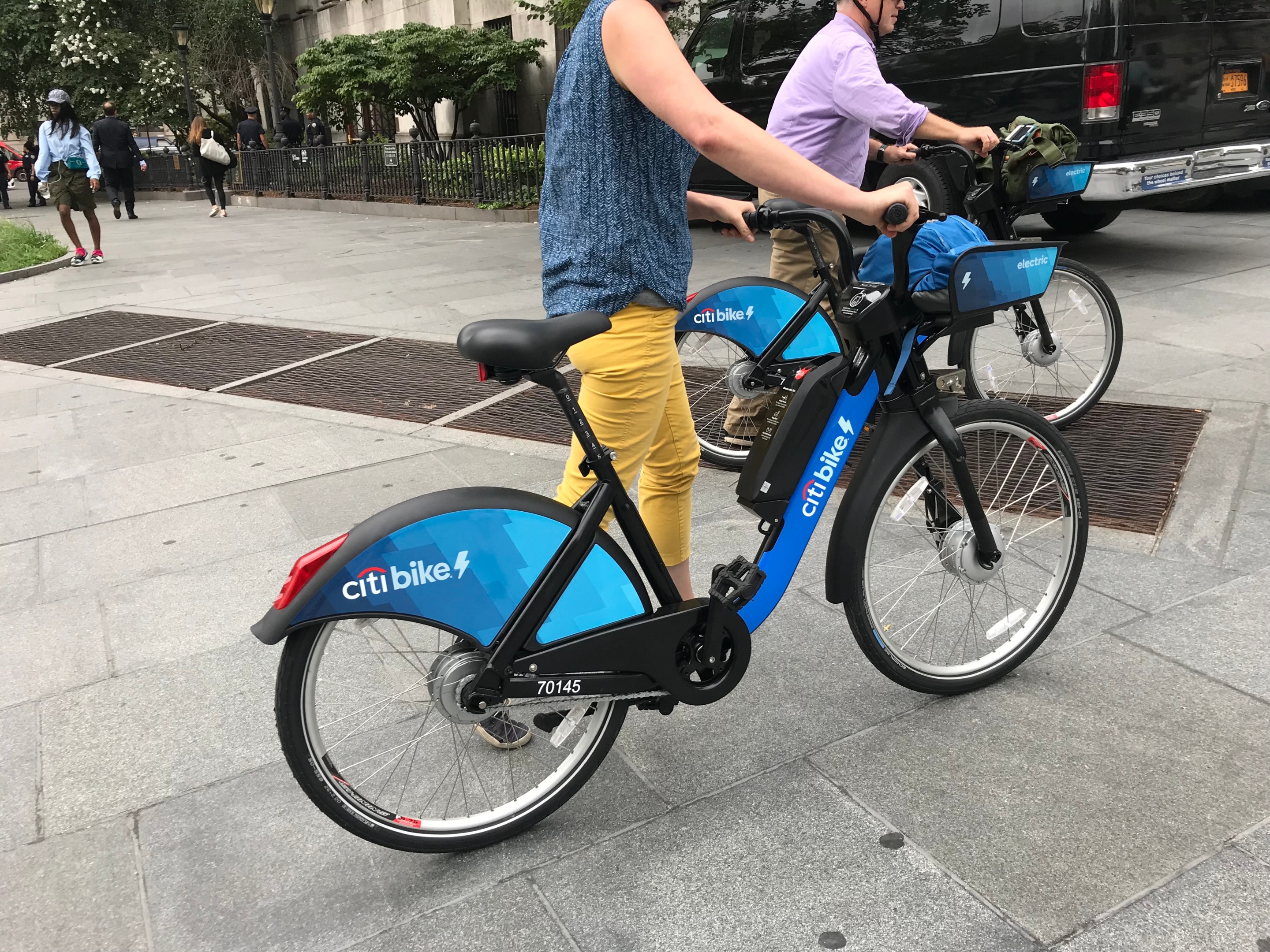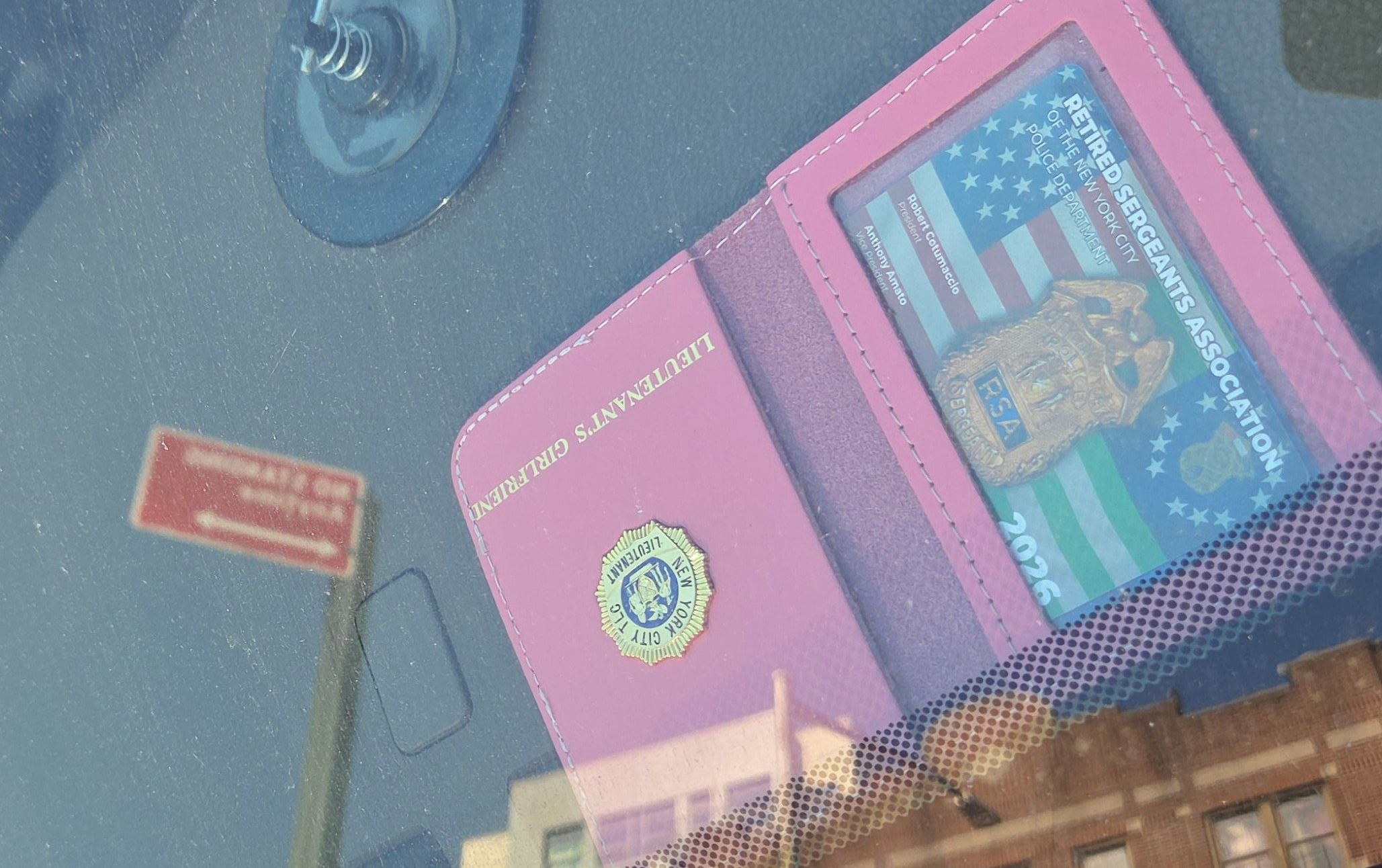The outrage has only just begun over state lawmakers' apparent plans to bar e-bikes and e-scooters from the Hudson River Greenway.
Officials at Citi Bike are raising an issue about language in the State Senate bill that bars newly legalized electric bikes and scooters from the popular bike path along the West Side Highway — one of the world's busiest bike lanes.
The bill, which was tweaked after lobbying by the Hudson River Park Trust and Hudson River Park Friends, is expected to pass on Wednesday. If unchanged, it would block all electric bikes from the greenway, including already-legal pedal-assist e-bikes offered by Citi Bike earlier this year — bikes that are set to return to city streets this fall after a repair issue.
Through a spokeswoman, Citi Bike said only, "We're eager to work with Hudson River Park to ensure that Citi Bike riders are able to ride down the greenway bike path when pedal-assist bike return in the fall.” A spokesman for Jump bike — which offers pedal-assist cycles, though for now only in pilot programs in Staten Island and the Bronx — also questioned the ban on the greenway.
“Banning pedal-assist bikes on the largest bike lane in the country would be a loss for thousands of riders, but it's more proof that we need to fight for more protected bike lanes and wider infrastructure across the city,” said Harry Hatfield, a spokesman for the Uber-owned red bike company.
Taken together, the message is clear: How did the Hudson River Park Trust get the already-legal pedal-assist electric bike — plus two soon-to-be-legalized classes of throttle-controlled e-bikes that can't exceed 25 miles per hour — barred from the greenway?
No one is talking today. Streetsblog reached out to State Senators Brad Hoylman and Liz Krueger — who are both said to have insisted on limits on e-bikes and scooters in Manhattan as a precondition of supporting the wider legalization bill. Neither Connie Fishman of Hudson River Park Friends nor officials at the Hudson River Park Trust returned our call — both groups testified against e-bikes and scooters on the greenway at a state hearing earlier this month.
The lack of official comment from lawmakers and e-bike opponents recalls the adage that success has many fathers but failure is an orphan. The vacuum of comments from officials was filled by bike advocates furious over the greenway ban.
Josh Gold, a spokesman for Uber, pointed out that losing the greenway puts more pressure on public officials to create more safe space for cyclists — including those he hopes will someday get to use the Uber-owned Jump bike.
One takeaway from carving the HRP greenway, the biggest bike path in the country by volume, out of pedal-assist bikes is that we simply don’t have enough protected bike lanes.
— Josh Gold (@JGoldny) June 17, 2019
Absolutely hilarious that they think they can "prevent" the use on the west side bike path. Will CitiBike get a corporate exemption for their eBikes?
— Mike Cane (@mikecane) June 17, 2019
A spokeswoman for Ramos pointed out that the bill does allow for officials to eventually legalize e-bikes or scooters on the Hudson River Greenway.
"The way the bill is written, it allows for agencies that oversee the greenway to decide to repeal that [no-e-bike/scooter] provision and it also allows them to regulate what they would allow on the greenways," said Ramos spox Julia Arredondo. "This is part of the bill's overall goal to stop the policing of New York's delivery workers while giving municipalities control over their own streets."
The only problem is that delivery workers like using the greenway because it provides a direct north-south route in Manhattan — the main area for food delivery. Macartney Morris of the Biking Public Project, which spearheaded the drive to legalize e-bikes, saw confusion in the future.
“The relief this bill provides workers far outweighs the trade-off regarding the greenway," he said. "However, tiers of legality for different roadways is no better than tiers of legality for different e-bikes classes. Delivery cyclists and workers deserve safe and direct passage on the greenway and on every New York City street, just as other e-bike riders do as well.”






